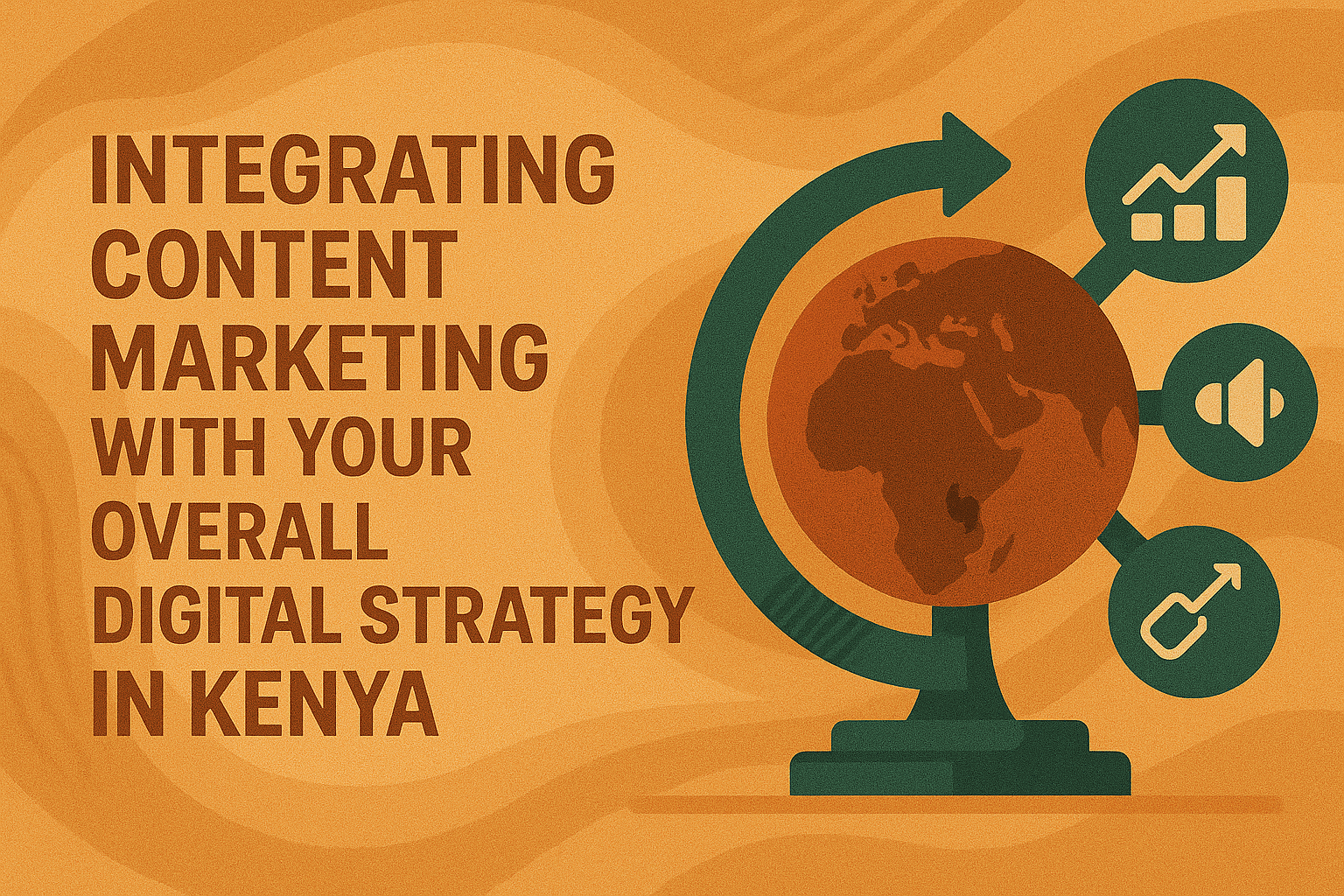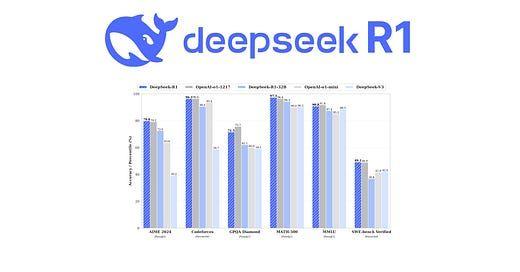
Ken Kariuki
Shiftpulse Marketers
Unlocking the Potential of Affiliate Marketing: A Comprehensive Guide to Earning in 2025

TL;DR: Affiliate marketing in 2025 is booming, with a projected market value of $27.78 billion. Key trends include AI-driven insights, influencer-affiliate convergence, mobile-first strategies, and diversified affiliate models. Success requires SEO, social media, email marketing, and blogging to drive traffic and optimize conversions.
Affiliate marketing has emerged as a powerful income stream for individuals and businesses in the ever-evolving digital landscape. To maximize your earning potential in this dynamic field, it's crucial to stay informed about the latest trends and strategies. This comprehensive guide delves deep into affiliate marketing, providing valuable insights, statistics, and actionable steps to help you thrive.
The State of Affiliate Marketing in 2025
The affiliate marketing industry is experiencing remarkable growth. Recent statistics paint a promising picture of its potential:
- Market Size: The global affiliate marketing industry is valued at over $17 billion and is projected to reach $27.78 billion by 202712.
- Brand Participation: Over 80% of digital brands and 84% of publishers leverage affiliate programs1.
- Revenue Generation: Affiliate marketing drives around 16% of all eCommerce sales in the US and Canada32.
- Return on Investment: Businesses report an average ROI of $15 for every dollar invested in affiliate marketing, translating to a 1400% return313.
- Earning Potential: The average affiliate marketer earns $8,038 per month, with 81.2% earning over $20,000 annually3. However, income varies significantly by niche. For example, those in finance earn an average of $9,296 per month, while those in arts and crafts earn $1,0413.
These figures highlight the significant impact of affiliate marketing on the digital economy and its potential for generating substantial revenue.
Affiliate Marketing Trends Shaping the Landscape
Staying ahead of the curve requires understanding the latest trends in affiliate marketing:
- Informed and Skeptical Consumers: Buyers are more informed than ever, relying heavily on online research and social proof before making purchases. Traditional advertising methods are becoming less effective as consumers seek authentic recommendations from trusted sources4.
- Diversification of Affiliate Models: Traditional affiliate partners like bloggers and influencers are expanding to include community leaders and non-digital platforms, offering a wider range of partnership opportunities4.
- AI-Driven Insights: AI is revolutionizing affiliate marketing by providing dynamic insights into consumer behavior and campaign optimization, enabling data-driven decision-making4.
- Convergence of Influencer and Affiliate Marketing: The lines between influencer marketing and affiliate marketing are blurring, with influencers increasingly incorporating affiliate links into their content, creating a more integrated approach to promotion4.
- Mobile-First Approach: With over half of all affiliate referral traffic originating from mobile devices, optimizing for mobile is paramount. Mobile affiliate spending has seen a significant year-over-year increase, highlighting the importance of catering to mobile users35.
- Traffic Acquisition Channels: Affiliate marketers utilize various channels to drive traffic to their offers. The following table shows the usage percentage of different channels: 3
Traffic Acquisition Channel Percentage of Usage
- SEO: 69% of affiliate marketers use SEO as their primary traffic source.
- Social Media: 67% of affiliate marketers utilize various social media platforms to drive traffic.
- Email Marketing: Email marketing is used by 22.8% of affiliate marketers to promote offers.
- Blogging: 64% of affiliate marketers use blogs to promote their affiliate links.
- Conversion and Commission Rates: The average conversion rate for affiliate marketing campaigns is around 1%. However, commissions vary widely, ranging from 10% to 70% depending on the niche and affiliate program. For example, SaaS products often offer commissions between 20% and 40%3.
- Consumer Behavior: Understanding consumer behavior is crucial for effective affiliate marketing. 83% of shoppers use coupons as a primary motivator for making purchases, and 50% of affiliate traffic comes from mobile devices. Furthermore, 74% of US online shoppers visit multiple affiliate websites before making a purchase, highlighting the importance of providing comprehensive and trustworthy information3.
By embracing these trends, affiliate marketers can adapt their strategies to effectively reach and engage their target audience.
Strategies for Success in Affiliate Marketing
Successful affiliate marketers employ various strategies to drive traffic, build trust, and maximize conversions:
Content Creation and Optimization:
- Focus on Niche Selection: Choosing a specific niche allows you to target a defined audience, establish expertise, and tailor your content to their specific needs and interests6.
- Build a High-Quality Affiliate Site: A professional website with valuable content, clear calls to action, and user-friendly design is essential for attracting and engaging visitors6.
- Leverage Content Marketing: Create high-quality content, such as blog posts, product reviews, and how-to guides, that provide value to your audience and naturally incorporate affiliate links. Consider user intent when creating content to ensure it aligns with what your audience is searching for67.
Audience Building and Engagement:
- Own the Relationship with Your Audience: Build a loyal audience through engaging content, email marketing, and social media interaction. Foster a sense of community and provide value to encourage repeat visits and conversions8.
- Offer Value and Build Trust: Prioritize providing valuable information and building trust with your audience to foster long-term relationships and establish yourself as a reliable source of recommendations7.
Product Selection and Promotion:
- Know the Products You Recommend: Thoroughly understand the products or services you promote to provide authentic and valuable recommendations that resonate with your audience8.
- Diversify Your Affiliate Partners: Don't rely solely on one affiliate program. Explore various options to mitigate risk and maximize earning potential8.
- Disclose Affiliate Links: Be transparent with your audience by disclosing your affiliate relationships. This builds trust and ensures ethical practices8.
- Consider Micro-Influencers: Partnering with micro-influencers who have a dedicated following in a specific niche can be highly effective in reaching a targeted audience and driving conversions9.
Performance Tracking and Optimization:
- Track and Optimize: Monitor your performance, analyze data, and make necessary adjustments to improve your campaigns. Pay attention to key metrics like clicks, conversion rates, and ROI to identify areas for improvement7.
By implementing these strategies, you can establish a strong foundation for affiliate marketing success.
Step-by-Step Guide for Beginners
Starting your affiliate marketing journey can seem daunting, but these steps will guide you through the process:
- Discover Your Profitable Niche: Choose a niche based on your interests, expertise, and market demand. Consider factors like profitability, competition, and audience engagement10.
- Select Your Platform: Choose a platform to reach your audience, such as a blog, social media, or YouTube channel. Consider your strengths and preferences when making this decision10.
- Join Affiliate Programs: Research and join affiliate programs that align with your niche and offer products or services you believe in10.
- Craft Compelling Content: Develop high-quality content that provides value to your audience and naturally incorporates affiliate links10.
- Cultivate Your Audience: Engage with your audience through consistent content creation, social media interaction, and email marketing10.
- Embrace FTC Regulations: Disclose your affiliate relationships transparently and comply with all relevant regulations10.
By following these steps, you can establish a solid foundation for your affiliate marketing endeavors.
Choosing the Right Products to Promote
Selecting the right products to promote is crucial for affiliate marketing success. Consider these factors:
- Relevance to Your Niche: Choose products that align with your niche and resonate with your audience's interests11.
- Product Demand and Popularity: Promote products with high demand and a proven track record of sales11.
- Commission Rate and Conversion Potential: Evaluate the commission structure and conversion rates of different affiliate programs11.
- Product Quality and Credibility: Only promote products you believe in and that offer genuine value to your audience11.
- Affiliate Program Features: Consider the features and support offered by the affiliate program, such as marketing materials, tracking tools, and payment options11.
By carefully evaluating these factors, you can choose products that will resonate with your audience and generate higher conversions.
Building an Audience and Promoting Affiliate Products
Reaching your target audience and promoting affiliate products effectively requires a multi-faceted approach:
- Blog Posts and Website Content: Incorporate affiliate links naturally within valuable blog posts, product reviews, and resource pages1213.
- Email Marketing: Build an email list and promote affiliate products through targeted email campaigns1213.
- Social Media Marketing: Leverage social media platforms to engage with your audience, share valuable content, and promote affiliate links1413.
- Video Marketing: Create engaging videos, such as product reviews and tutorials, and include affiliate links in the descriptions1413.
- Podcast and Webinar Promotion: Mention affiliate products during podcasts or webinars and provide links in the show notes or resources1213.
- Online Courses and Lead Magnets: Incorporate affiliate links within online courses, ebooks, and other lead magnets1213.
- Paid Advertising: Utilize paid advertising platforms, such as Google Ads and social media ads, to reach a wider audience1213.
By diversifying your promotional channels, you can maximize your reach and increase the chances of conversions.
Tracking Affiliate Marketing Performance
Tracking your affiliate marketing performance is essential for optimizing campaigns and maximizing your earnings. Key metrics to monitor include:
- Clicks: Track the number of clicks on your affiliate links to gauge audience engagement and interest15.
- Conversion Rates: Monitor the percentage of clicks that result in conversions (sales or leads) to assess the effectiveness of your promotions16.
- Average Order Value (AOV): Track the average amount spent per order to understand customer behavior and identify high-value customers15.
- Return on Investment (ROI): Calculate your ROI to determine the profitability of your affiliate marketing campaigns15.
- Earnings Per Click (EPC): Measure the average earnings generated per click to assess the value of your affiliate links17.
- Customer Lifetime Value (CLTV): Track the long-term value of customers acquired through affiliate marketing to understand the overall impact of your efforts16.
By analyzing these metrics, you can identify areas for improvement and optimize your campaigns. For example, you can improve your conversion funnel by enhancing your website's SEO, simplifying the buying process, and conducting A/B testing on landing pages17. Data-driven iteration, where you continuously analyze your metrics and make adjustments, is crucial for long-term success17.
Legal and Ethical Considerations
Affiliate marketing involves legal and ethical responsibilities that must be adhered to:
- Disclosures and Transparency: Clearly disclose your affiliate relationships to your audience to maintain trust and comply with regulations1819.
- Adhering to Laws and Regulations: Comply with relevant advertising, consumer protection, and data privacy laws, such as the FTC guidelines, GDPR, and CCPA1819.
- Preventing Fraud: Avoid deceptive practices, such as forced clicks, cookie stuffing, and malware, that can harm your reputation and violate ethical guidelines18.
- Paid Search Policy Violations: Avoid bidding on a merchant's branded terms in search ads, as this can divert traffic from their own campaigns.
- Forced Clicks and Cookie Stuffing: Do not generate clicks on your affiliate links without the user's knowledge or consent.
- Malware and Adware: Refrain from using malware or adware to promote affiliate links.
- Typosquatting: Do not use domain names that are similar to a merchant's brand to mislead users.
- Respecting Privacy: Handle customer data responsibly and comply with privacy laws to protect user information18.
By prioritizing ethical practices and legal compliance, you can build a sustainable and reputable affiliate marketing business.
Affiliate Marketing Programs and Networks
Numerous affiliate marketing programs and networks connect businesses with affiliates:
Awin
- A popular global affiliate network with a wide range of programs across various niches.
- Commission rates vary by program.
- Cookie duration varies by program.
- Pros: Large network, global reach, diverse programs.
- Cons: $5 application fee.
PartnerStack
- A platform focused on SaaS affiliate programs, connecting businesses with partners in the software industry.
- Commission rates vary by program.
- Cookie duration varies by program.
- Pros: No sign-up costs, focused on SaaS.
- Cons: Fewer merchants than larger networks.
Amazon Associates
- The largest affiliate marketing program globally, offering access to millions of products on Amazon.
- Commission rates vary by product category.
- Cookie duration is 24 hours.
- Pros: Huge product selection, easy to join.
- Cons: Low commission rates, short cookie duration.
Walmart Affiliates
- An affiliate program from Walmart, providing competitive commissions and a diverse range of products.
- Commission rates vary by product category.
- Cookie duration is 3 days.
- Pros: Competitive commissions, longer cookie duration than Amazon.
- Cons: Smaller product selection than Amazon.
ShareASale
- A free and reliable affiliate network with a vast selection of merchants and products across various categories.
- Commission rates vary by program.
- Cookie duration varies by program.
- Pros: Free to join, large network, diverse programs.
- Cons: Can have lower commission rates for some programs.
CJ Affiliate
- One of the oldest and most established affiliate networks, known for its robust platform and diverse programs.
- Commission rates vary by program.
- Cookie duration varies by program.
- Pros: Established network, reliable tracking, diverse programs.
- Cons: Can be more complex for beginners.
Impact.com
- A leading partnership management platform that connects businesses with affiliates, influencers, and other partners.
- Commission rates vary by program.
- Cookie duration varies by program.
- Pros: Comprehensive platform, advanced tracking, diverse partnerships.
- Cons: Can be expensive.
Rakuten Advertising
- A network focused on premium publisher partnerships, connecting brands with high-quality content creators and media placements.
- Commission rates vary by program.
- Cookie duration varies by program.
- Pros: High-quality publishers, strong brand reputation.
- Cons: Can be more selective in accepting affiliates.
Essential Tools for Affiliate Marketers
Several tools can assist you in your affiliate marketing journey:
- Ahrefs: An all-in-one SEO tool that helps with keyword research, website audits, competitor analysis, and content ideation24.
- Rank Math: A WordPress plugin that optimizes your website's on-page SEO to improve search engine rankings24.
- AnyTrack: A platform that helps track affiliate links, monitor conversions, and analyze campaign performance15.
- Affiliamate: A WordPress plugin specifically designed for managing affiliate links and tracking their performance15.
These tools can streamline your workflow, improve your website's visibility, and provide valuable insights into your affiliate marketing campaigns.
Affiliate Marketing Success Stories
Real-world examples can provide inspiration and valuable lessons for aspiring affiliate marketers. Here are a few success stories:
- Small Business Success: A local coffee shop partnered with a food blogger, resulting in a 75% increase in website traffic and a 40% boost in sales within the first month. This demonstrates the power of niche marketing and collaborating with local influencers25.
- Innovative Affiliate Tactics: A tech reviewer created in-depth comparison videos and tutorials, integrating affiliate links within the content. This approach generated a steady income stream by providing valuable information and building trust with the audience25.
- Pat Flynn: A well-known affiliate marketer who built a successful online business through his blog, "Smart Passive Income," by sharing his knowledge and expertise on various topics26.
- Attila: An affiliate marketer and entrepreneur who owns multiple successful businesses, including BannersLanders and iAmAttila, focused on helping others succeed in affiliate marketing26.
These examples showcase the diverse paths to success in affiliate marketing and the potential for achieving significant results.
Challenges and Risks in Affiliate Marketing
While affiliate marketing offers significant opportunities, it's essential to be aware of potential challenges and risks:
- Fraudulent Traffic: A significant portion of affiliate traffic can be fraudulent, generated through bots or deceptive practices. This can lead to inaccurate data and wasted marketing spend5.
- Competition: The affiliate marketing landscape is competitive, requiring effort and strategic planning to stand out from the crowd.
- Changing Landscape: The digital marketing world is constantly evolving, requiring affiliate marketers to adapt to new trends and technologies.
By understanding these challenges, you can take proactive steps to mitigate risks and build a sustainable affiliate marketing business.
Conclusion
Affiliate marketing presents a lucrative opportunity to earn income online. By understanding the current landscape, implementing effective strategies, and staying informed about the latest trends and legal considerations, you can unlock the full potential of affiliate marketing and achieve your financial goals. Remember to prioritize building trust with your audience, providing valuable content, and promoting products you genuinely believe in. Align your passion with profit, find your niche, and adapt to the evolving landscape of affiliate marketing. With dedication and a strategic approach, affiliate marketing can become a sustainable and rewarding income stream.




![Top 10 Digital Marketing Agencies in Kenya [2025 Rankings]](/_next/image?url=https%3A%2F%2Fcdn.sanity.io%2Fimages%2Fvhsaz9nz%2Fproduction%2Fe391482b6038dfd55aa53b9fbe32c8a798503629-500x500.png&w=3840&q=75)








